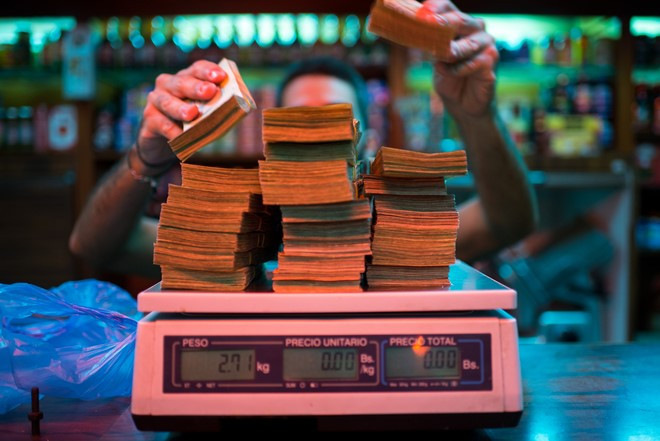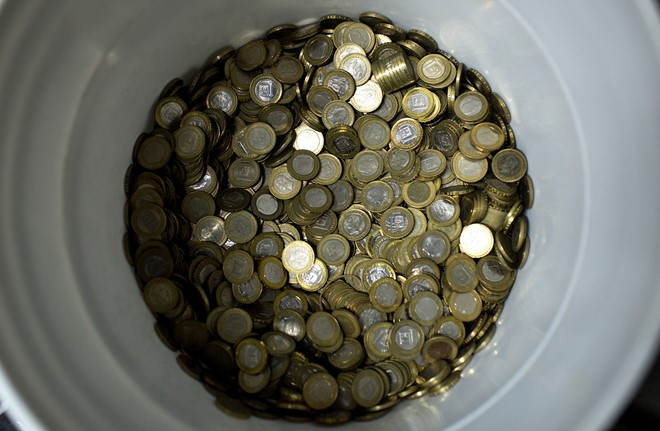Venezuelans tired of weighing money
Hyperinflation in Venezuela has caused the country's currency, the bolivar, to plummet in value, forcing people to use sacks of money to buy food.
At a food stall in Caracas, Humberto Gonzalez weighs bags of money instead of counting customers’ money. “It’s getting sadder and sadder,” he told Bloomberg. “At this point, I think cheese is worth more.”
The scene of people weighing money to sell goods in Caracas is considered the clearest sign of hyperinflation in Venezuela, although the country does not publish regular consumer price data.
 |
| A cashier at a bakery in Venezuela weighs money for sale. Photo: Bloomberg. |
Sacks of money
The phenomenon of money balancing is not yet widespread but is on the rise. It is reminiscent of historical periods of high inflation in countries such as post-World War I Germany, the former Yugoslavia in the 1990s and most recently Zimbabwe.
"It shows that inflation in Venezuela is out of control. But the people of this country do not know the true severity of it because the government refuses to publish the figures," said Jesus Casique, chief financial officer of consulting firm Capital Market Finance.
In the absence of official figures, economists are forced to make predictions. They estimate the inflation rate to be between 200% and 1,500%.
Once one of the world’s strongest currencies, the Venezuelan bolivar has become a nuisance for citizens. They are caught in the awkward position of having a lot of cash but barely enough to buy a simple item. Cashiers have to store money in multiple boxes because their drawers are full.
They have to carry hundreds of bills just to buy basic goods. People often have to carry sacks of money on the street, in a country with high crime rates. "Carrying that much money on the street is extremely dangerous, you put your life at risk," said Jose Marcano, 26.
 |
| Economists estimate inflation in Venezuela at around 200%-1,500%. Photo: Bloomberg. |
Print higher denomination money
To have enough money to buy things, people have to go through a tiring journey of waiting in line to withdraw money at the bank. Not only has the number of ATMs been reduced, but banks have also imposed withdrawal limits. Just 2 years ago, money in ATMs was replenished in a few days. Now, the time to replenish money is only a few hours.
About one-third of the workforce are manual workers and are accustomed to using cash only. Pensions are also paid in cash.
The value of money has fallen, but the government has not issued larger denominations. The highest value note is 100 bolivars, but its value is less than 10 cents (1/10 of a dollar).
Meanwhile, some sources said the government has secretly asked money-producing companies to send samples of higher denominations for consideration, including 500 bolivars, 1,000 bolivars... or even 20,000 bolivars. To reduce costs, the state has proposed only changing the color of the current bills, adding a zero, but not changing the design.
Caracas is said to have requested new bills ahead of Christmas bonuses. Such orders take four to six months to complete, but no contracts have been signed. The Venezuelan Central Bank did not respond to a request for comment.
Now, having too much money has become an obsession for Bremmer Rodrigues, 25. He owns a bakery on the outskirts of Caracas, where he sells hundreds of thousands of bolivar notes every day. Rodrigues hides the money in his office, waiting for the right moment to package it up and transport it to the bank.
"If anyone saw me transferring money, they would think I was a drug lord. I receive a mountain of money every day," he said.
According to Zing.vn
| RELATED NEWS |
|---|

